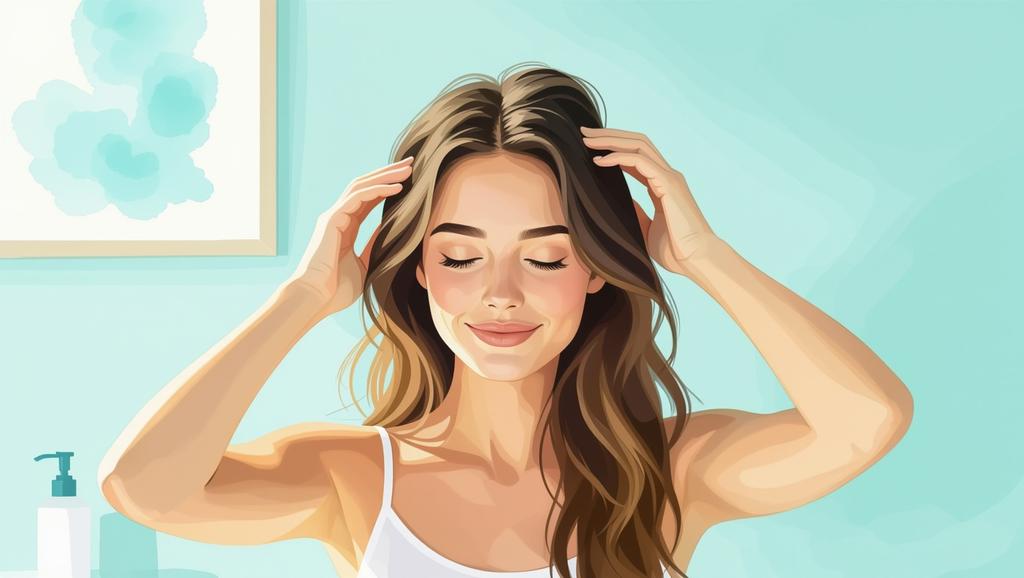Common causes of scalp pain when moving hair
When your scalp hurts as you move your hair, it can be quite unsettling. This sensation, often described as a pulling or stinging pain at the roots, can stem from various underlying issues. Let’s dive into some of the most common culprits behind this discomfort.
One of the primary reasons for scalp pain when moving hair is tension headaches. These headaches can cause a tight band-like pressure around your head, which in turn can make your scalp feel sore. I remember once, after a particularly stressful week, I noticed my scalp was sensitive to the touch, and even the slightest movement of my hair caused discomfort. Tension headaches are often linked to stress and poor posture, so keeping an eye on these factors can help manage the pain.
Another frequent cause is scalp infections. These can range from mild folliculitis to more severe conditions like ringworm. Infections lead to inflammation and irritation, making your scalp sensitive and painful when you move your hair. I had a friend who experienced this after sharing a hairbrush, and it took a while for her scalp to heal. Keeping your hair care tools clean and avoiding sharing them can prevent such infections.
Lastly, psoriasis and dermatitis can also be to blame. These skin conditions cause inflammation and flaking, which can make your scalp tender and sore. I’ve seen people struggle with these conditions, and it’s not just about the pain; the constant itching can drive you up the wall. Using medicated shampoos and keeping your scalp moisturized can help alleviate the symptoms.

Medical conditions leading to scalp discomfort
Sometimes, the pain you feel when moving your hair could be a symptom of a more serious medical condition. It’s important to recognize these conditions early to seek appropriate treatment.
Trichodynia, also known as burning scalp syndrome, is one such condition. It’s characterized by a burning sensation on the scalp, often accompanied by hair loss. I’ve read about people who felt like their scalp was on fire, and moving their hair only worsened the pain. While the exact cause is unknown, managing stress can sometimes help alleviate the symptoms.
Another condition to consider is occipital neuralgia. This involves the occipital nerves that run from the back of your neck to your scalp. When these nerves are irritated or damaged, it can lead to intense scalp pain, especially when you move your hair. I once had a friend who suffered from this after a neck injury, and she described the pain as sharp and shooting. If you suspect you have occipital neuralgia, seeing a neurologist can provide you with the right diagnosis and treatment.
Migraines can also contribute to scalp discomfort. During a migraine, the scalp can become extremely sensitive, and any movement of the hair can exacerbate the pain. I’ve experienced migraines myself, and the throbbing pain combined with scalp sensitivity can be debilitating. Resting in a dark, quiet room and using essential oils like lavender can offer some relief.
Lifestyle factors contributing to scalp pain
Your daily habits and lifestyle choices can also play a significant role in whether your scalp hurts when you move your hair. Let’s explore some of these factors.
Tight hairstyles are a common culprit. Wearing your hair in tight ponytails, buns, or braids can pull on your scalp, leading to pain and discomfort. I used to love tight hairstyles, but I noticed that after a day of wearing them, my scalp would feel sore. Giving your scalp a break from these styles can help prevent this issue.
Stress and anxiety can manifest physically, and one way it might show up is through scalp pain. When you’re stressed, your body tenses up, and this tension can extend to your scalp. I’ve felt this myself; during high-stress periods, my scalp would feel tight and sore, especially when I moved my hair. Managing stress through relaxation techniques like yoga or meditation can make a big difference.
Lastly, poor diet and hydration can affect your scalp health. Dehydration can lead to dry, brittle hair, which can tug at your scalp when you move it. Similarly, a diet lacking essential nutrients can weaken your hair and scalp. I’ve found that drinking plenty of water and eating a balanced diet helps keep my scalp in better condition.
When to see a doctor for scalp pain
While many cases of scalp pain can be managed at home, there are times when it’s crucial to seek medical attention. If your scalp pain persists for more than a few days, worsens over time, or is accompanied by other symptoms like fever, swelling, or severe hair loss, it’s time to see a doctor.
I had a friend who ignored her scalp pain, thinking it would go away on its own, only to find out later that she had a severe scalp infection. Early intervention can prevent complications and help you get back to feeling comfortable. A dermatologist or a trichologist can provide a thorough examination and recommend the best course of treatment for your specific condition.
Home remedies to relieve scalp pain
When your scalp hurts as you move your hair, there are several home remedies you can try to find relief. These methods can help soothe the pain and reduce inflammation.
Warm oil massages can be incredibly beneficial. Massaging your scalp with warm oils like coconut or olive oil can improve blood circulation and relax the muscles, reducing pain. I love doing this on weekends; it not only helps with scalp pain but also feels incredibly relaxing.
Gentle hair care practices are also essential. Using a wide-tooth comb and avoiding harsh chemicals can prevent further irritation. I’ve found that being gentle with my hair, especially when it’s wet, helps keep my scalp from getting sore.
For immediate relief, over-the-counter pain relief like ibuprofen or acetaminophen can be effective. These can help manage the pain while you address the underlying cause. I keep some on hand for those times when my scalp feels particularly sensitive.
Preventive measures to avoid scalp pain
Preventing scalp pain from occurring in the first place is always better than treating it. Here are some measures you can take to keep your scalp healthy and pain-free.
Choosing the right hair products is crucial. Opt for products that are gentle on your scalp and free from harsh chemicals. I’ve switched to sulfate-free shampoos and noticed a significant improvement in my scalp’s health.
Establishing a regular scalp care routine can also help. This might include using a scalp scrub once a week to remove dead skin and buildup, which can cause irritation. I find that a gentle scrub keeps my scalp feeling fresh and less prone to pain.
Managing stress effectively is another key factor. Since stress can contribute to scalp pain, finding ways to relax and unwind can prevent this issue. I’ve found that activities like reading or taking a warm bath help me manage my stress levels, which in turn keeps my scalp feeling better.

Conclusion: Understanding and managing scalp pain
Understanding why your scalp hurts when you move your hair is the first step toward finding relief. Whether it’s due to tension headaches, scalp infections, or lifestyle factors like tight hairstyles and stress, there are various ways to manage and prevent this discomfort.
By adopting gentle hair care practices, using the right products, and managing stress effectively, you can keep your scalp healthy and pain-free. If the pain persists or worsens, don’t hesitate to seek professional help. Remember, a healthy scalp is the foundation of beautiful hair, and taking care of it can make all the difference.
Read more How to wear a headband to elevate your style
For more insights on hair care and fashion trends, check out our other articles on tinitees.com.










